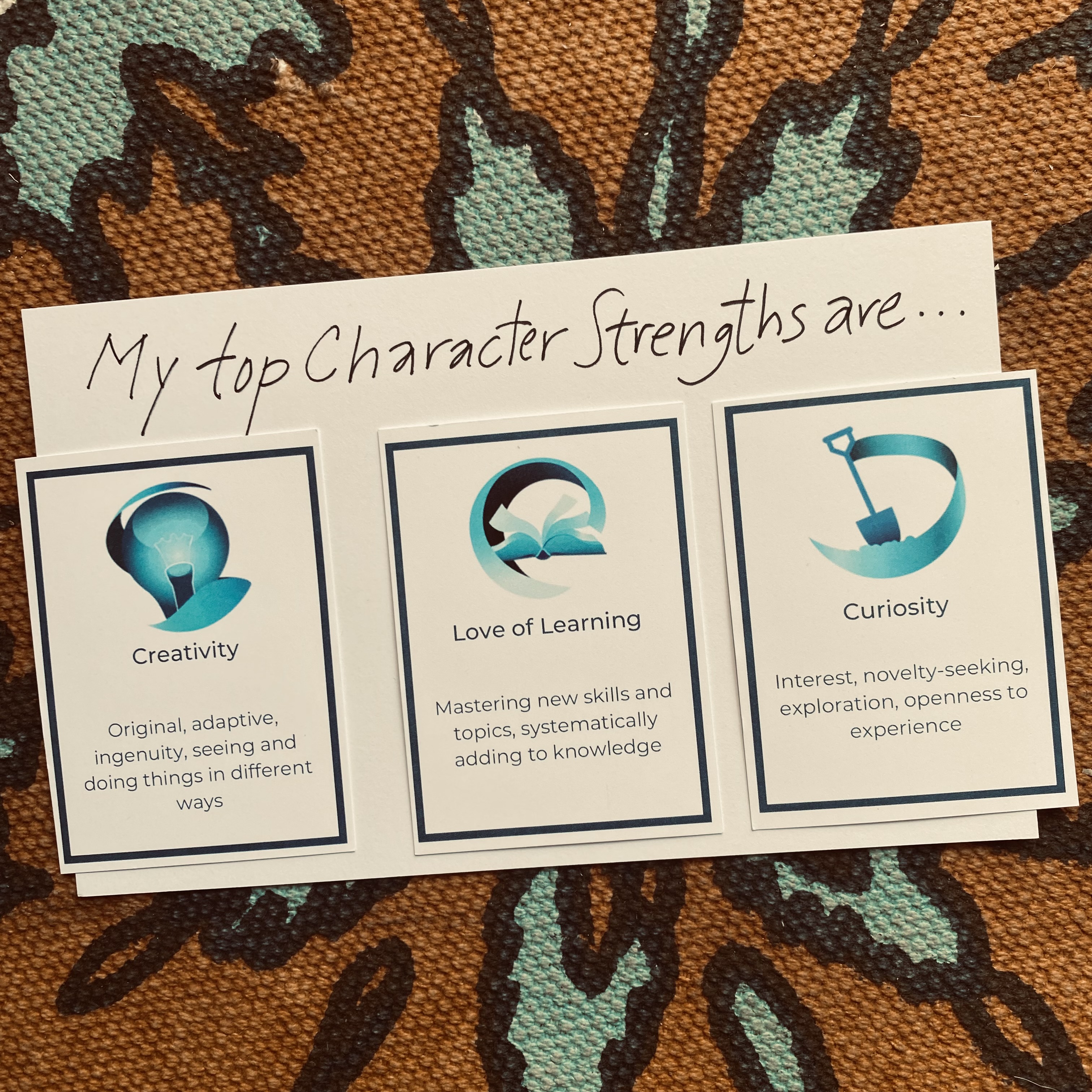
Why Character Strengths Matter
Has anyone ever told you you have a superpower? Maybe you have a broad perspective, you are an innately gifted problem-solver, or your team counts on your humor and honesty. These are all Character Strengths.
In our September focus on Strengths, this week we’re exploring Character Strengths as developed by the VIA Institute on Character.
You have probably taken a strengths survey somewhere along the way in your professional life. While other assessments focus on skills, competencies, or personality traits, the VIA Character Strengths assessment builds on the foundations of positive psychology developed by psychologists Christopher Peterson and Martin Seligman, who identified 24 character strengths that are believed to be universal across cultures.
It specifically emphasizes moral and ethical qualities—your character strengths that fall under six broad virtues: wisdom, courage, humanity, justice, temperance, and transcendence.
I love that the assessment is free and widely accessible, without financial barriers, and there is also a free VIA Youth Survey for ages 8-17 years old, which can help you better understand your children’s strengths.
So why does knowing your Character Strengths matter? What’s in it for you or your team?
Personal growth and development
The assessment identifies your core strengths, some of which you may be overlooking. As you value these important tools, you can use them more effectively for work and life challenges, better relationships, and personal growth.
Better leadership skills
When you know your strengths and those of the others you work with, you build a cohesive and interdependent team with a broader range of capabilities. Sometimes called “soft skills,” the Character Strengths align with the skills we all need to serve our organizations, including teamwork, creativity, time management, adaptability, resilience, problem-solving, critical thinking, conflict management, and emotional intelligence.
A vocabulary for appreciation
It’s nice to receive a thank you and recognition for a well-done task. However, it’s even more well-received when there is a deeper and more specific appreciation for the qualities that a person brings to a task, a certain curiosity, leadership, or perseverance. Appreciating others at home and work enhances your relationships and the shared trust and connection.
Are you curious to learn more about Character Strengths? Check out this presentation from last week.
You can also check out the VIA Character Strengths Survey here.
Leave a Comment